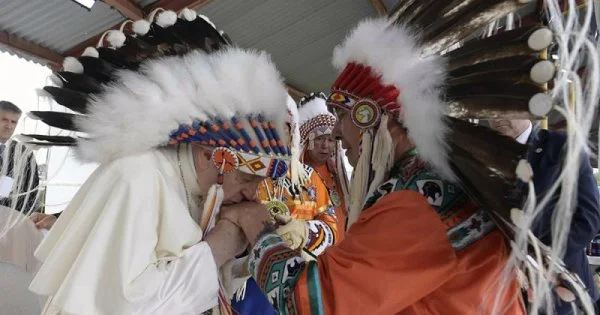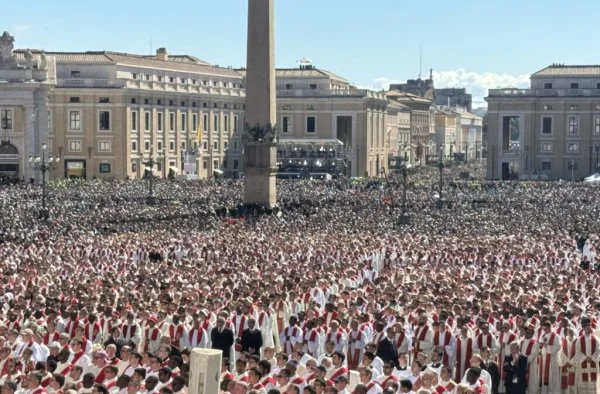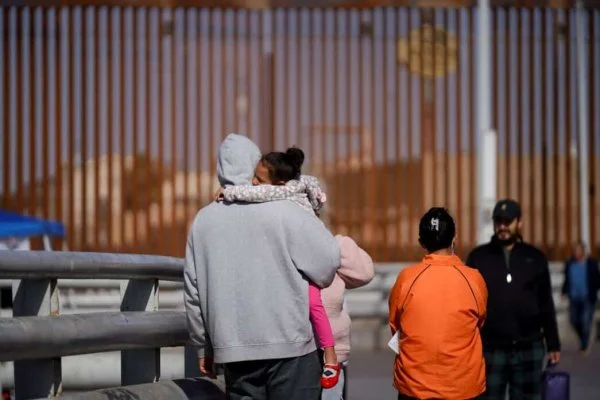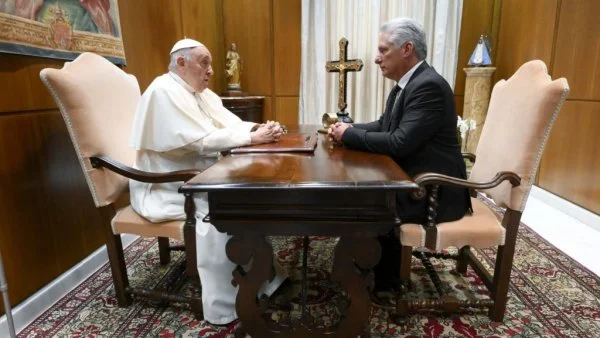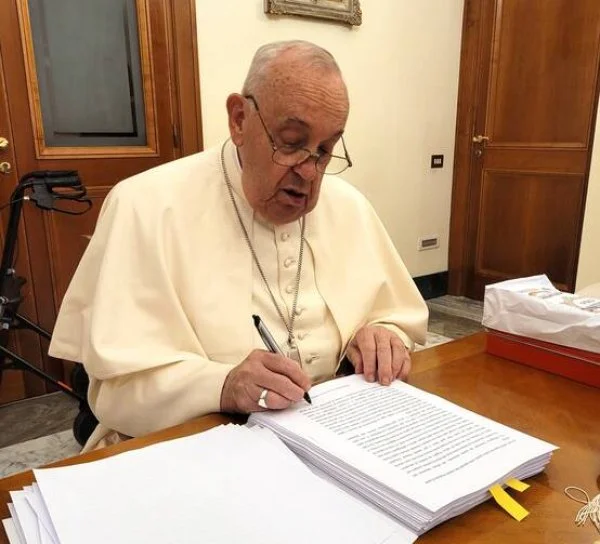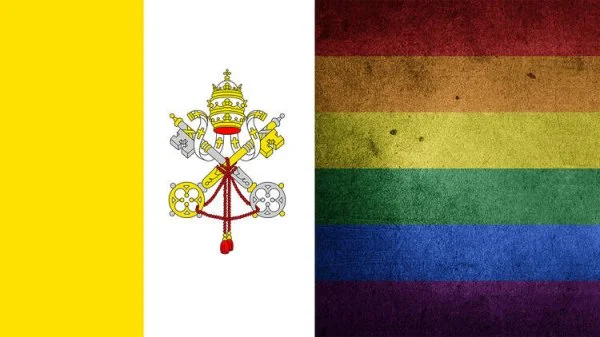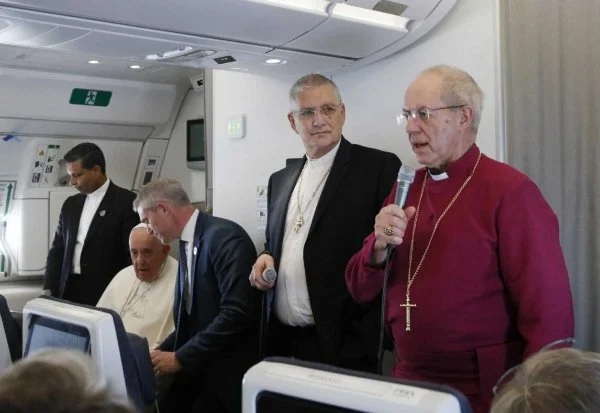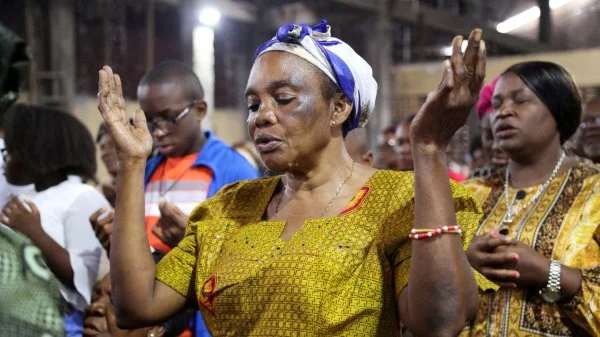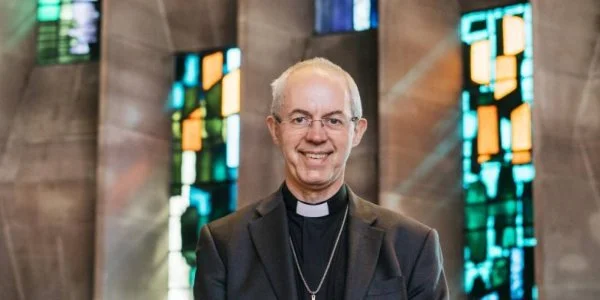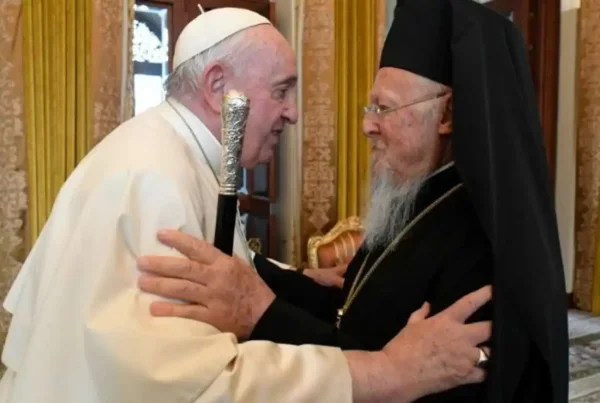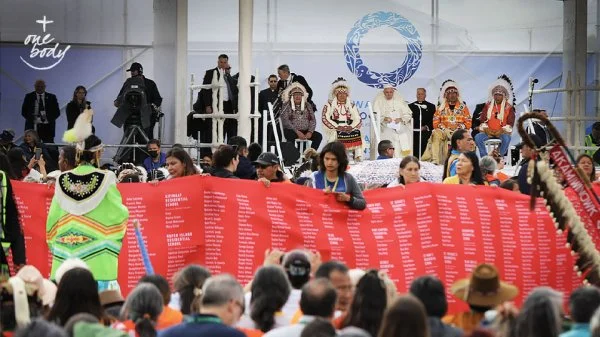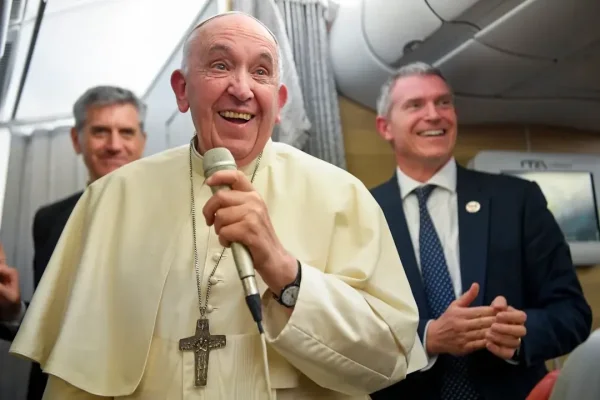- Français
- |
- Booklist
- |
- Week of Prayer
- |
- Links
- Areopagus - a forum for dialogue
- Academic journals
- Acronyms
- Bible tools
- Bibliographies
- Booksellers and publishers
- Churches
- Canadian church headquarters
- Directory of Saskatchewan churches
- Retreat centres
- Saskatchewan church and non-profit agencies
- Ecumenism.net Denominational links
- Anabaptist & Mennonite
- Anglican
- Baptist
- Evangelical
- Independent episcopal
- Lutheran
- Methodist, Wesleyan, and Holiness
- Miscellaneous
- Mormon
- Orthodox (Eastern & Oriental)
- Para-church ministries
- Pentecostal / charismatic
- Presbyterian & Reformed
- Quaker (Society of Friends)
- Roman & Eastern Catholic
- United and uniting
- Documents of Ecumenical Interest
- Ecumenical agencies
- Ecumenical Booklist
- Ecumenical Dialogues
- Glossary
- Human rights
- Inter-religious links
- Justice & peace
- Lectionaries
- Religious news services
- Resource pages
- Search Ecumenism.Net
- |
- Documents
- Ancient & Medieval texts
- Ecumenical Dialogues
- Interreligious
- Anabaptist & Mennonite
- Anglican
- Evangelical
- Lutheran
- Orthodox
- Reformed & Presbyterian
- Roman & Eastern Catholic
- United & Uniting
- Miscellaneous churches
- Canadian Council of Churches (CCC)
- Conference of European Churches (CEC)
- Interchurch Families International Network (IFIN)
- National Council of Churches in Australia (NCCA)
- Lausanne Committee for World Evangelism (LCWE)
- World Council of Churches (WCC)
- Other ecumenical documents
Church traditions
Documents from ecumenical agencies
- |
- Dialogues
- Adventist-Reformed
- African Instituted Churches-Reformed
- Anglican-Lutheran
- Anglican-Orthodox
- Anglican-Reformed
- Anglican-Roman Catholic
- Anglican-United/Uniting
- Baptist-Reformed
- Disciples of Christ-Reformed
- Disciples of Christ-Roman Catholic
- Evangelical-Roman Catholic
- Lutheran-Mennonite
- Lutheran-Mennonite-Roman Catholic
- Lutheran-Reformed
- Lutheran-Roman Catholic
- Mennonite-Reformed
- Mennonite-Roman Catholic
- Methodist-Reformed
- Methodist-Roman Catholic
- Oriental Orthodox-Reformed
- Orthodox-Reformed
- Orthodox-Roman Catholic
- Pentecostal-Reformed
- Prague Consultations
- REC-WARC Consultations
- Roman Catholic-Lutheran-Reformed
- Roman Catholic-Reformed
- Roman Catholic-United Church of Canada
- |
- Quick links
- Canadian Centre for Ecumenism
- Canadian Council of Churches
- Ecumenical Shared Ministries
- Ecumenism in Canada
- Interchurch Families International Network
- International Anglican-Roman Catholic Commission for Unity and Mission
- Kairos: Canadian Ecumenical Justice Initiatives
- North American Academy of Ecumenists
- Prairie Centre for Ecumenism
- Réseau œcuménique justice et paix
- Week of Prayer for Christian Unity
- Women's Interchurch Council of Canada
- World Council of Churches
- |
- Archives
- |
- About us
Archive for tag: Pope Francis
Archive pour tag : Pope Francis
Pope Leo XIV fulfilled a promise made by the late Pope Francis to return to Canada’s Indigenous communities artifacts — including an Inuit kayak, masks, moccasins, and etchings — that have been held by the Vatican for more than 100 years.
The pope gave 62 artifacts to the leaders of the Canadian bishops’ conference Nov. 15, the Vatican and the bishops’ conference said in a joint statement.
The bishops “will proceed, as soon as possible, to transfer these artifacts to the National Indigenous Organizations,” which will ensure they are “reunited with their communities of origin,” said a separate statement from the Canadian Conference of Catholic Bishops.
… Read more » … lire la suite »

 Permanent link: ecumenism.net/?p=14686
Permanent link: ecumenism.net/?p=14686
Categories: CNS • In this article: Canada, Indigenous peoples, Pope Francis, Pope Leo XIV, Reconciliation

 Lien permanente : ecumenism.net/?p=14686
Lien permanente : ecumenism.net/?p=14686
Catégorie : CNS • Dans cet article : Canada, Indigenous peoples, Pope Francis, Pope Leo XIV, Reconciliation
I thought that travelling to Thursday Island in the Torres Strait was a big trip to make when I responded to Bishop Keith Joseph’s invitation to preside at the Easter services at the Old Cathedral of All Souls and St Bartholomew this year. Little did I realise that just a few days after Easter I would receive a request from the Anglican Communion Office to be part of the Anglican representation at Pope Francis’ funeral in Rome the following weekend.
Planning had to proceed quickly, and I flew out on the Wednesday on flight legs that added up to around 24 hours in the air before arriving in Rome on the Thursday afternoon. Our delegation, led by the Primate of Brazil, Archbishop Marinez Bassotto, assembled at the Anglican Centre, Rome before we were taken to St Peter’s Basilica to pray where Pope Francis’ body lay in state in an open coffin.
… Read more » … lire la suite »

 Permanent link: ecumenism.net/?p=14583
Permanent link: ecumenism.net/?p=14583
Categories: News • In this article: Anglican, ARCIC, Pope Francis

 Lien permanente : ecumenism.net/?p=14583
Lien permanente : ecumenism.net/?p=14583
Catégorie : News • Dans cet article : Anglican, ARCIC, Pope Francis
After Pope Francis died, an ecumenical colleague asked me about the ecumenical legacy of the late pope. As I endeavoured to answer him, I found myself clarifying at several points that Francis was not all that different in his ecumenical commitments from the previous popes, going back to Pope Paul VI and the Second Vatican Council. Each of the post-conciliar popes has presided over significant steps on the ecumenical journey, and Francis should be seen as continuing this same journey. As much as I love and appreciate him, I am uncomfortable giving Francis sole credit for achievements that are largely due to the efforts of ecumenical leaders in the Roman Curia, ecumenical agencies, theological dialogues, and national and local churches. The achievements of the ecumenical movement during the Francis papacy are certainly due to his guidance, encouragement, permission, and his genuinely open spirit, and it is for these that we can give thanks.
The Spirit asks us to listen to the questions, concerns, and hopes of every Church, people, and nation. And to listen to the world, to the challenges and changes that it sets before us. Let us not soundproof our hearts; let us not remain barricaded in our certainties. So often our certainties can make us closed. Let us listen to one another (Homily at the Mass Opening the Synodal Path, October 10, 2021).
Working as an ecumenist in the Francis years has been a great joy. I have been studying and working in ecumenism since the late 1980s, beginning in the middle years of Pope John Paul II and through the long years of Joseph Ratzinger/Pope Benedict XVI’s time at the Congregation for the Doctrine of the Faith (CDF) and then his papacy. These were positive years of ecumenical progress. John Paul II was a figure who transformed Catholic relations with the Evangelical world. He presided over the most significant years of bilateral dialogue with Anglicans, Lutherans, Orthodox, Methodists, and Reformed. He was the pope who approved the Joint Declaration on the Doctrine of Justification and issued common declarations on Christology with the Oriental Orthodox. He convened world religious leaders at Assisi to pray for peace.
… Read more » … lire la suite »

 Permanent link: ecumenism.net/?p=14573
Permanent link: ecumenism.net/?p=14573
Categories: One Body, Opinion • In this article: ecumenism, One Body, Pope Francis

 Lien permanente : ecumenism.net/?p=14573
Lien permanente : ecumenism.net/?p=14573
Catégorie : One Body, Opinion • Dans cet article : ecumenism, One Body, Pope Francis
Pope Francis has urged U.S. Catholics and people of goodwill to not give in to “narratives” that discriminate against and cause unnecessary suffering to migrants and refugees.
“I recognize your valuable efforts, dear brother bishops of the United States, as you work closely with migrants and refugees, proclaiming Jesus Christ and promoting fundamental human rights,” he said in a letter to the U.S. bishops published by the Vatican Feb. 11.
Pope Francis said he was writing because of “the major crisis that is taking place in the United States” with the start of President Donald J. Trump’s “program of mass deportations.”
In his presidential executive order, “Protecting the American people against invasion,” released Jan. 20, Trump said, “Many of these aliens unlawfully within the United States present significant threats to national security and public safety, committing vile and heinous acts against innocent Americans.”
Pope Francis said, “The rightly formed conscience cannot fail to make a critical judgment and express its disagreement with any measure that tacitly or explicitly identifies the illegal status of some migrants with criminality.”
… Read more » … lire la suite »

 Permanent link: ecumenism.net/?p=14530
Permanent link: ecumenism.net/?p=14530
Categories: CNS • In this article: Donald Trump, JD Vance, migration, Pope Francis, refugees, USA, USCCB

 Lien permanente : ecumenism.net/?p=14530
Lien permanente : ecumenism.net/?p=14530
Catégorie : CNS • Dans cet article : Donald Trump, JD Vance, migration, Pope Francis, refugees, USA, USCCB
The Nicene Creed is more than a statement of faith — it is a powerful sign of unity among Christians, Pope Francis said as he welcomed young priests and monks from Oriental Orthodox Churches to the Vatican.
“Whereas the devil divides, the symbol unites!” the pope told the group taking part in a study visit to Rome promoted by the Dicastery for Promoting Christian Unity. He explained that the Creed is called a “symbol” because it not only summarizes the core truths of Christianity but also serves as a sign of identity and communion among believers.
“How beautiful it would be if, each time we proclaim the Creed, we felt united with Christians of all traditions,” he said.
… Read more » … lire la suite »

 Permanent link: ecumenism.net/?p=14528
Permanent link: ecumenism.net/?p=14528
Categories: CNS • In this article: Nicaea 2025, Nicene-Constantinopolitan Creed, Oriental Orthodox, Pope Francis

 Lien permanente : ecumenism.net/?p=14528
Lien permanente : ecumenism.net/?p=14528
Catégorie : CNS • Dans cet article : Nicaea 2025, Nicene-Constantinopolitan Creed, Oriental Orthodox, Pope Francis
Taking up the spirit of the recently inaugurated Holy Year 2025, the Cuban government has announced the release of 553 people currently serving prison sentences.
Cuba said it would gradually release the prisoners “in the spirit of the Ordinary Jubilee of the year 2025 declared by His Holiness” following a “thorough analysis” of the legal and humanitarian avenues to enact their release, Cuba’s Ministry of Foreign Affairs announced in a statement Jan. 14.
The statement did not specify who would be among the 553 prisoners designated to be released.
That same day, the White House announced that it will no longer designate Cuba as a state sponsor of terrorism and that it would eliminate some restrictions on Cuba.
The White House said the actions were steps “to support the Cuban people as part of an understanding with the Catholic Church under the leadership of Pope Francis and improve the livelihoods of Cubans.”
… Read more » … lire la suite »

 Permanent link: ecumenism.net/?p=14460
Permanent link: ecumenism.net/?p=14460
Categories: CNS • In this article: Cuba, Jubilee, Pope Francis

 Lien permanente : ecumenism.net/?p=14460
Lien permanente : ecumenism.net/?p=14460
Catégorie : CNS • Dans cet article : Cuba, Jubilee, Pope Francis
VATICAN CITY (CNS) — While calling himself an “old man” and saying he never expected to be pope this long, Pope Francis said he still has dreams for the future.
“We must not stumble upon tomorrow, we must build it, and we all have the responsibility to do so in a way that responds to the project of God, which is none other than the happiness of mankind, the centrality of mankind, without excluding anyone,” the 88-year-old pope wrote in his autobiography.
“Hope: The Autobiography” was written with the Italian editor Carlo Musso beginning in 2019. The book was released Jan. 14 in its original Italian and in 17 other languages in about 100 countries. Random House published the book in the United States, and Penguin Random House Canada released it in Canada.
The original plan, Musso said, was for the book to be released after Pope Francis’ death. But Mondadori, the Italian publisher coordinating the release, said the pope decided in August that it should be published at the beginning of the Holy Year 2025, which has hope as its central theme.
… Read more » … lire la suite »

 Permanent link: ecumenism.net/?p=14457
Permanent link: ecumenism.net/?p=14457
Categories: CNS • In this article: hope, Pope Francis

 Lien permanente : ecumenism.net/?p=14457
Lien permanente : ecumenism.net/?p=14457
Catégorie : CNS • Dans cet article : hope, Pope Francis
VATICAN CITY (RNS) — A provisional document published by the Italian Bishops’ Conference on Friday (Jan. 10) and approved by the Vatican cautiously opens the door for the ordination of openly gay men to the priesthood, while maintaining the normal requirement of chastity.
“In the formative process, when referring to homosexual tendencies, it’s also appropriate not to reduce discernment only to this aspect, but, as for every candidate, to grasp its meaning in the global framework of the young person’s personality,” the document reads, adding that the goal is for the candidate to know himself and find harmony between his human and priestly vocation.
The Vatican department for clergy approved the document, which will be valid for three years. The document was signed by the head of the Italian bishops, Cardinal Matteo Zuppi, who is considered a close collaborator to Pope Francis.
… Read more » … lire la suite »

 Permanent link: ecumenism.net/?p=14454
Permanent link: ecumenism.net/?p=14454
Categories: RNS • In this article: LGBTQ, Pope Francis, Vatican

 Lien permanente : ecumenism.net/?p=14454
Lien permanente : ecumenism.net/?p=14454
Catégorie : RNS • Dans cet article : LGBTQ, Pope Francis, Vatican
Doubling down on the centrality of synodality in the Catholic Church, Pope Francis said that it is now up to local churches to accept and implement proposals from the final document approved by the Synod of Bishops on synodality.
Approved by the pope, the synod’s final document “participates in the ordinary magisterium of the successor of Peter, and as such, I ask that it be accepted,” the pope wrote in a note published by the Vatican Nov. 25.
“Local churches and groupings of churches are now called upon to implement, in different contexts, the authoritative indications contained in the document, through the processes of discernment and decision-making provided by law and by the document itself,” he wrote nearly a month after the synod’s close.
The final document outlined key priorities for the church, including increased participation of laity through new ministries and adjusted governing structures, greater transparency and accountability among church leadership and creating space for previously marginalized groups.
After synod members voted to approve the final document, Pope Francis announced that he would not write the customary apostolic exhortation after the synod but would instead offer the document to the entire church for implementation.
… Read more » … lire la suite »

 Permanent link: ecumenism.net/?p=14391
Permanent link: ecumenism.net/?p=14391
Categories: CNS • In this article: Pope Francis, synod, synodality

 Lien permanente : ecumenism.net/?p=14391
Lien permanente : ecumenism.net/?p=14391
Catégorie : CNS • Dans cet article : Pope Francis, synod, synodality
An Ecumenical Prayer Vigil took place on Friday, 11 October, in the Square of the Roman Protomartyrs at the Vatican, attended by Pope Francis and participants in the second session of the XVI Ordinary General Assembly of the Synod of Bishops (2-27 October 2024).
In his introductory remarks, Cardinal Koch, Prefect of the DPCU, recalled that this day marked the anniversary of the opening of the Second Vatican Council, and also highlighted the 60th anniversary of the publication of the Dogmatic Constitution on the Church, Lumen Gentium, and the Decree on Ecumenism, Unitatis Redintegratio.
… Read more » … lire la suite »

 Permanent link: ecumenism.net/?p=14384
Permanent link: ecumenism.net/?p=14384
Categories: News • In this article: Pope Francis, prayer, spiritual ecumenism, synodality

 Lien permanente : ecumenism.net/?p=14384
Lien permanente : ecumenism.net/?p=14384
Catégorie : News • Dans cet article : Pope Francis, prayer, spiritual ecumenism, synodality
Unity within Christian communities and the unity of all the churches will grow only as believers draw closer to Jesus and learn to be honest in examining if they are listening to the Holy Spirit or to their own preferences, Pope Francis told leaders of the worldwide Anglican Communion.
“We are called to pray and to listen to one another, seeking to understand each other’s concerns and asking ourselves, before enquiring of others, whether we have been docile to the promptings of the Holy Spirit or prey to our own personal or group opinions,” Pope Francis said May 2 as he welcomed to the Vatican Anglican Archbishop Justin Welby of Canterbury and the primates of the Anglican churches.
“Surely, the divine way of seeing things will never be one of division, separation or the interruption of dialogue,” the pope said. “Rather, God’s way leads us to cling ever more fervently to the Lord Jesus, for only in communion with him will we find full communion with one another.”
Pope Francis read his speech to the group, but also set aside time to respond to the primates’ questions, Archbishop Linda Nicholls, primate of the Anglican Church of Canada, told reporters. The questions, she said, allowed the pope to talk about “his own passions in ministry, unity in diversity, harmony, and he said in several ways that ‘war is always, always, always a defeat.'”
… Read more » … lire la suite »

 Permanent link: ecumenism.net/?p=14302
Permanent link: ecumenism.net/?p=14302
Categories: CNS • In this article: Anglican Communion, Pope Francis, Primates Meeting

 Lien permanente : ecumenism.net/?p=14302
Lien permanente : ecumenism.net/?p=14302
Catégorie : CNS • Dans cet article : Anglican Communion, Pope Francis, Primates Meeting
In his greetings shared with participants at the Fourth World Gathering of the Global Christian Forum taking place in Accra, Ghana, Pope Francis encourages everyone to deepen their faith and revitalize fraternal love, reflecting the unity to which Christians are called as they discuss the challenges facing the global Christian community.
Pope Francis has sent his greetings to participants meeting for the Fourth World Gathering of the Global Christian Forum from 15 to 20 April in Accra, Ghana. The global gathering brings together Christians from around the world of various traditions for a special time of prayer, worship, dialogue, and mission.
… Read more » … lire la suite »

 Permanent link: ecumenism.net/?p=14633
Permanent link: ecumenism.net/?p=14633
Categories: Vatican News • In this article: Global Christian Forum, Pope Francis

 Lien permanente : ecumenism.net/?p=14633
Lien permanente : ecumenism.net/?p=14633
Catégorie : Vatican News • Dans cet article : Global Christian Forum, Pope Francis
The world’s cultures, traditions, spiritualities and languages must be acknowledged, respected and protected, especially those of Indigenous peoples, Pope Francis said.
The entire patrimony of human knowledge “should be employed as a means of overcoming conflicts in a nonviolent manner and combating poverty and the new forms of slavery,” he said in remarks read by an aide March 14 to participants attending a workshop at the Vatican.
The Pontifical Academies of Sciences and of Social Sciences jointly sponsored a workshop March 14-15 on the knowledge of Indigenous peoples and the work and research being carried out in the sciences.
… Read more » … lire la suite »

 Permanent link: ecumenism.net/?p=14089
Permanent link: ecumenism.net/?p=14089
Categories: CNS • In this article: Indigenous spirituality, Pope Francis, science

 Lien permanente : ecumenism.net/?p=14089
Lien permanente : ecumenism.net/?p=14089
Catégorie : CNS • Dans cet article : Indigenous spirituality, Pope Francis, science
With the help of a woman Anglican bishop, a Salesian sister and a consecrated virgin, Pope Francis and his international Council of Cardinals devoted the first morning of their February meeting “to deepening their reflection, begun last December, on the role of women in the church,” the Vatican press office said.
Matteo Bruni, director of the Vatican press office, said Feb. 5 the pope and cardinals heard from Bishop Jo Bailey Wells, deputy secretary-general of the Anglican Communion; Salesian Sr. Linda Pocher, a professor of Christology and Mariology at Rome’s Pontifical Faculty of Educational Sciences “Auxilium,” and Giuliva Di Berardino, a consecrated virgin and liturgist from the Diocese of Verona, Italy.
… Read more » … lire la suite »

 Permanent link: ecumenism.net/?p=14024
Permanent link: ecumenism.net/?p=14024
Categories: CNS • In this article: Pope Francis, women

 Lien permanente : ecumenism.net/?p=14024
Lien permanente : ecumenism.net/?p=14024
Catégorie : CNS • Dans cet article : Pope Francis, women
This letter was sent by Pope Francis on Feb. 2 to Karma Ben Johanan, who teaches at the department of comparative religion at the Hebrew University of Jerusalem. Dr. Ben Johanan was the coordinator of the open letter to the pope from more than 400 Jewish rabbis and scholars last November.
Dear brothers and sisters,
We are experiencing a moment of great travail. Wars and divisions are increasing all over the world. We are truly, as I said some time ago, in the midst of a sort of “piecemeal world war”, with serious consequences on the lives of many populations.
Unfortunately, even the Holy Land has not been spared this pain, and since October 7 it too has been cast into a spiral of unprecedented violence. My heart is torn at the sight of what is happening in the Holy Land, by the power of so much division and so much hatred.
… Read more » … lire la suite »

 Permanent link: ecumenism.net/?p=14032
Permanent link: ecumenism.net/?p=14032
Categories: Documents, News • In this article: Holy Land, Israel, Judaism, Palestine, Pope Francis

 Lien permanente : ecumenism.net/?p=14032
Lien permanente : ecumenism.net/?p=14032
Catégorie : Documents, News • Dans cet article : Holy Land, Israel, Judaism, Palestine, Pope Francis
Divided Christians will draw closer to one another only by loving God and loving their neighbours, serving one another and not pointing fingers in blame for past faults, Pope Francis said.
Closing the Week of Prayer for Christian Unity with an evening prayer service Jan. 25 at Rome’s Basilica of St. Paul Outside the Walls, Francis was joined by Anglican Archbishop Justin Welby of Canterbury and, at the end of the service, the two commissioned pairs of Anglican and Catholic bishops from 27 countries to “bear witness together to the hope that does not deceive and to the unity for which our Savior prayed.”
Members of the Joint International Commission for Theological Dialogue between the Catholic Church and the Oriental Orthodox Churches, who were meeting in Rome, also participated along with representatives of Orthodox, Protestant and Anglican communities in Italy.
In his homily, Francis reflected on the theme for the 2024 celebration of the week of prayer: “You shall love the Lord your God … and your neighbour as yourself” from Luke 10:27.
The passage comes from a Gospel story in which a scholar of the law asks Jesus what he must do to inherit eternal life. After Jesus affirms the need to love God and one’s neighbour, the scholar asks, “And who is my neighbour?”
… Read more » … lire la suite »

 Permanent link: ecumenism.net/?p=14012
Permanent link: ecumenism.net/?p=14012
Categories: CNS • In this article: Justin Welby, Pope Francis, WPCU

 Lien permanente : ecumenism.net/?p=14012
Lien permanente : ecumenism.net/?p=14012
Catégorie : CNS • Dans cet article : Justin Welby, Pope Francis, WPCU
A major leap forward in Christian unity began with an embrace, as Pope Francis recalled.
St. Paul VI and Orthodox Ecumenical Patriarch Athenagoras I of Constantinople met, and embraced, in Jerusalem in January 1964 and the following year they lifted the mutual excommunications their churches had issued in 1054.
Pope Francis marked the anniversary during his Angelus address Jan. 6, 2024 telling a crowd in St. Peter’s Square that the two leaders had broken down “a wall of incommunicability that had kept Catholics and Orthodox apart for centuries. Let us learn from the embrace of those two great men of the church on the path to Christian unity: praying together, walking together, working together.”
The praying, walking and working will be highlighted Jan. 18-25 as Christians around the world celebrate the Week of Prayer for Christian Unity.
… Read more » … lire la suite »

 Permanent link: ecumenism.net/?p=14009
Permanent link: ecumenism.net/?p=14009
Categories: CNS • In this article: Christian unity, Pope Francis, WPCU

 Lien permanente : ecumenism.net/?p=14009
Lien permanente : ecumenism.net/?p=14009
Catégorie : CNS • Dans cet article : Christian unity, Pope Francis, WPCU
We write as Jewish scholars, religious leaders, and long-time practitioners in Jewish-Christian dialogue, in Israel, America, and Europe, to remind our brothers and sisters in the Catholic Church of “the bond that spiritually ties the people of the New Covenant to Abraham’s stock” (Nostra Aetate #4) in a time of distress and anguish for Jews all over the world.
… Read more » … lire la suite »

 Permanent link: ecumenism.net/?p=14033
Permanent link: ecumenism.net/?p=14033
Categories: Documents, News • In this article: Holy Land, Israel, Judaism, Palestine, Pope Francis

 Lien permanente : ecumenism.net/?p=14033
Lien permanente : ecumenism.net/?p=14033
Catégorie : Documents, News • Dans cet article : Holy Land, Israel, Judaism, Palestine, Pope Francis
Pope Francis has published an Apostolic Exhortation building on his 2015 encyclical. We’re not reacting enough, he says, we’re close to breaking point. He criticises climate change deniers, saying that the human origin of global warming is now beyond doubt. And he describes how care for our common home flows from the Christian faith.
“’Praise God’ is the title of this letter. For when human beings claim to take God’s place, they become their own worst enemies.”
That’s how Pope Francis ends his new Apostolic Exhortation, published on the 4th October, the Feast of St Francis of Assisi.
… Read more » … lire la suite »

 Permanent link: ecumenism.net/?p=13927
Permanent link: ecumenism.net/?p=13927
Categories: Documents, Vatican News • In this article: climate change, creation, ecology, environment, Laudate Deum, Laudato Si', Pope Francis

 Lien permanente : ecumenism.net/?p=13927
Lien permanente : ecumenism.net/?p=13927
Catégorie : Documents, Vatican News • Dans cet article : climate change, creation, ecology, environment, Laudate Deum, Laudato Si', Pope Francis
On the eve of a three-day spiritual retreat for participants in the assembly of the Synod of Bishops, Pope Francis prayed that members of the church may embrace silence to listen to the voice of God and one another.
“Silence, in the ecclesial community, makes fraternal communication possible, where the Holy Spirit draws together points of view,” the pope said to members of the synod, Christian leaders and young people in St. Peter’s Square Sept. 30. “To be synodal is to welcome one another like this, in the knowledge that we all have something to share and to learn, gathering together to listen to the spirit of truth in order to know what the Lord is saying to the churches.”
… Read more » … lire la suite »

 Permanent link: ecumenism.net/?p=14381
Permanent link: ecumenism.net/?p=14381
Categories: CNS • In this article: Pope Francis, prayer, synod

 Lien permanente : ecumenism.net/?p=14381
Lien permanente : ecumenism.net/?p=14381
Catégorie : CNS • Dans cet article : Pope Francis, prayer, synod
At an ecumenical prayer vigil on the eve of the General Assembly of the Synod, Pope Francis says that the truth “does not need loud cries to reach people’s hearts.”
Pope Francis has addressed the thousands of pilgrims gathered in St Peter’s Square for an ecumenical prayer vigil.
The faithful – who hail from across the denominational spectrum, and include the heads of many Christian Churches – have gathered to entrust the upcoming General Assembly of the Synod to the Holy Spirit.
… Read more » … lire la suite »

 Permanent link: ecumenism.net/?p=14373
Permanent link: ecumenism.net/?p=14373
Categories: Vatican News • In this article: Pope Francis, prayer, synodality, Vatican

 Lien permanente : ecumenism.net/?p=14373
Lien permanente : ecumenism.net/?p=14373
Catégorie : Vatican News • Dans cet article : Pope Francis, prayer, synodality, Vatican
A leading Asian theologian says Pope Francis’ decision to include non-ordained women and men as voting members of October’s synod assembly is a “giant step” that will irreversibly change the Church’s decision-making processes.
Last month, the synod secretariat announced the Pope had authorised a reform to allow at least 70 non-bishops to be members of the 4-29 October synod assembly in the Vatican. This move will see women given a vote in a synod for the first time.
… Read more » … lire la suite »

 Permanent link: ecumenism.net/?p=13894
Permanent link: ecumenism.net/?p=13894
Categories: Tablet • In this article: Pope Francis, synodality

 Lien permanente : ecumenism.net/?p=13894
Lien permanente : ecumenism.net/?p=13894
Catégorie : Tablet • Dans cet article : Pope Francis, synodality
Pope Francis has continued his predecessors’ serious commitment to ecumenical dialogue, but he also makes ecumenical gestures that underline that seriousness. Meeting Coptic Orthodox Pope Tawadros II of Alexandria, Egypt, Pope Francis paid tribute to the 21 Coptic martyrs murdered by Islamic State in 2015, noting they were killed for being Christian, not for being Orthodox. And he announced that they would be added to the Roman Martyrology, the book-length calendar of saints and blessed remembered by Catholics at Mass.
… Read more » … lire la suite »

 Permanent link: ecumenism.net/?p=13669
Permanent link: ecumenism.net/?p=13669
Categories: CNS • In this article: Coptic, martyrdom, Pope Francis, Tawadros II

 Lien permanente : ecumenism.net/?p=13669
Lien permanente : ecumenism.net/?p=13669
Catégorie : CNS • Dans cet article : Coptic, martyrdom, Pope Francis, Tawadros II
Pope Francis’ decision in late April to include lay persons as full participants with voting rights in the upcoming Synod of Bishops is a significant step towards making the synod a body that more adequately represents and embodies an act of discernment by the whole entire people of God.
In exhorting the pastors of the local churches to embark upon a synodal process with the whole community of the baptized and listen to the voices of the marginalized, the pope has been seeking to reawaken the muscle memory of the ecclesial body.
… Read more » … lire la suite »

 Permanent link: ecumenism.net/?p=13681
Permanent link: ecumenism.net/?p=13681
Categories: NCR, Opinion • In this article: Catholic, laity, Pope Francis, synodality

 Lien permanente : ecumenism.net/?p=13681
Lien permanente : ecumenism.net/?p=13681
Catégorie : NCR, Opinion • Dans cet article : Catholic, laity, Pope Francis, synodality
Pope Francis is getting personally involved in making sure sacred items and cultural artifacts held in the Vatican Museums are returned to Canadian Indigenous communities.
“The restitution of Indigenous things of Canada is underway, at least we agreed to do so,” Pope Francis told reporters during his news conference on the plane trip back to Rome April 30 following his papal visit to Hungary. “I will now ask how that’s going.”
… Read more » … lire la suite »

 Permanent link: ecumenism.net/?p=13652
Permanent link: ecumenism.net/?p=13652
Categories: Catholic Register • In this article: Indigenous peoples, Pope Francis, Reconciliation

 Lien permanente : ecumenism.net/?p=13652
Lien permanente : ecumenism.net/?p=13652
Catégorie : Catholic Register • Dans cet article : Indigenous peoples, Pope Francis, Reconciliation
The Cross of Wales, a new processional cross presented by King Charles III as a centenary gift to the Church in Wales, will lead the Coronation procession at Westminster Abbey on 6 May. In a significant ecumenical gesture, the Cross of Wales incorporates a relic of the True Cross, the personal gift of Pope Francis to the King to mark the Coronation. The relics, set into the silver cross, are two small wooden splinters from the cross on which Christ was crucified.
… Read more » … lire la suite »

 Permanent link: ecumenism.net/?p=13565
Permanent link: ecumenism.net/?p=13565
Categories: News • In this article: Anglican, Catholic, Charles III, Church in Wales, Pope Francis, relics

 Lien permanente : ecumenism.net/?p=13565
Lien permanente : ecumenism.net/?p=13565
Catégorie : News • Dans cet article : Anglican, Catholic, Charles III, Church in Wales, Pope Francis, relics
Pope Francis asked the Anglican archbishop of Canterbury and the moderator of the Presbyterian Church of Scotland to join him for his usual post-trip news conference on their flight back to Rome from Juba, South Sudan, Feb. 5.
… Read more » … lire la suite »

 Permanent link: ecumenism.net/?p=13240
Permanent link: ecumenism.net/?p=13240
Categories: CNS • In this article: Church of Scotland, Justin Welby, peace, pilgrimage, Pope Francis, South Sudan

 Lien permanente : ecumenism.net/?p=13240
Lien permanente : ecumenism.net/?p=13240
Catégorie : CNS • Dans cet article : Church of Scotland, Justin Welby, peace, pilgrimage, Pope Francis, South Sudan
As part of their historic ecumenical pilgrimage to South Sudan, Pope Francis, Anglican Archbishop Justin Welby of Canterbury and the Rev. Iain Greenshields, moderator of the Presbyterian Church of Scotland, led an ecumenical prayer for peace Feb. 4 in Juba.
… Read more » … lire la suite »

 Permanent link: ecumenism.net/?p=13237
Permanent link: ecumenism.net/?p=13237
Categories: CNS • In this article: Church of Scotland, Justin Welby, peace, pilgrimage, Pope Francis, South Sudan

 Lien permanente : ecumenism.net/?p=13237
Lien permanente : ecumenism.net/?p=13237
Catégorie : CNS • Dans cet article : Church of Scotland, Justin Welby, peace, pilgrimage, Pope Francis, South Sudan
The Archbishop of Canterbury, Justin Welby, has expressed his horror at the news that 27 people have been killed in Kajo-Keji, on the eve of his historic Ecumenical Peace Pilgrimage with Pope Francis and the Moderator of the presbyterian Church of Scotland, Iain Greenshields.
… Read more » … lire la suite »

 Permanent link: ecumenism.net/?p=13231
Permanent link: ecumenism.net/?p=13231
Categories: ACNS • In this article: Church of Scotland, Justin Welby, peace, Pope Francis, South Sudan

 Lien permanente : ecumenism.net/?p=13231
Lien permanente : ecumenism.net/?p=13231
Catégorie : ACNS • Dans cet article : Church of Scotland, Justin Welby, peace, Pope Francis, South Sudan
Pope Francis reaffirmed that homosexuality is not a crime, and that any sexual act outside of marriage is a sin, in a written response to a request for clarification about his remarks during a recent interview with the Associated Press.
… Read more » … lire la suite »

 Permanent link: ecumenism.net/?p=13220
Permanent link: ecumenism.net/?p=13220
Categories: CNS • In this article: human sexuality, LGBTQ, Pope Francis

 Lien permanente : ecumenism.net/?p=13220
Lien permanente : ecumenism.net/?p=13220
Catégorie : CNS • Dans cet article : human sexuality, LGBTQ, Pope Francis
Before beginning their ecumenical pilgrimage of peace to South Sudan, Pope Francis and the leaders of the Anglican Communion and the Presbyterian Church of Scotland asked Christians around the globe to accompany them with prayers.
… Read more » … lire la suite »

 Permanent link: ecumenism.net/?p=13204
Permanent link: ecumenism.net/?p=13204
Categories: CNS • In this article: Church of Scotland, Justin Welby, Pope Francis, South Sudan

 Lien permanente : ecumenism.net/?p=13204
Lien permanente : ecumenism.net/?p=13204
Catégorie : CNS • Dans cet article : Church of Scotland, Justin Welby, Pope Francis, South Sudan
Pope Francis invites Christians to pray for his upcoming Apostolic Journey to the Democratic Republic of Congo and South Sudan, saying the African nations have suffered greatly from lengthy conflicts. Pope Francis sets off on Tuesday as a “pilgrim of peace” to the Democratic Republic of Congo and South Sudan on 31 January – 5 February.
… Read more » … lire la suite »

 Permanent link: ecumenism.net/?p=13174
Permanent link: ecumenism.net/?p=13174
Categories: Vatican News • In this article: Pope Francis, South Sudan

 Lien permanente : ecumenism.net/?p=13174
Lien permanente : ecumenism.net/?p=13174
Catégorie : Vatican News • Dans cet article : Pope Francis, South Sudan
In South Sudan, “the Church speaks with one voice for peace,” says Presbyterian leader about the upcoming trip with Pope Francis. From February 3 to 5, the Moderator of the Presbyterian Church of Scotland, the Right Reverend Dr. Iain Greenshields, will join Pope Francis and the Archbishop of Canterbury, Justin Welby, on a “pilgrimage of peace” to South Sudan. The three Christian branches have worked together for several years to promote peace in the youngest state in the world, which continues to be troubled by conflict since its independence in 2011.
… Read more » … lire la suite »

 Permanent link: ecumenism.net/?p=13176
Permanent link: ecumenism.net/?p=13176
Categories: News • In this article: Church of Scotland, Justin Welby, Pope Francis, Presbyterian Church USA

 Lien permanente : ecumenism.net/?p=13176
Lien permanente : ecumenism.net/?p=13176
Catégorie : News • Dans cet article : Church of Scotland, Justin Welby, Pope Francis, Presbyterian Church USA
Braving a volatile political and security situation, Pope Francis embarks on a long-anticipated journey of unity and reconciliation to two African countries wracked by bitter divisions, warring factions and humanitarian crises seldom on the radar of international power brokers.
… Read more » … lire la suite »

 Permanent link: ecumenism.net/?p=13156
Permanent link: ecumenism.net/?p=13156
Categories: Catholic Register • In this article: DR Congo, peace, Pope Francis, South Sudan

 Lien permanente : ecumenism.net/?p=13156
Lien permanente : ecumenism.net/?p=13156
Catégorie : Catholic Register • Dans cet article : DR Congo, peace, Pope Francis, South Sudan
Pope Francis, the leader of the Roman Catholic Church; Archbishop Justin Welby of Canterbury, UK; and Rt. Rev. Iain Greenshields, moderator of the general assembly of the Church of Scotland; will travel to the world’s youngest nation on 3- 5 February on a spiritual and peace mission.
… Read more » … lire la suite »

 Permanent link: ecumenism.net/?p=13146
Permanent link: ecumenism.net/?p=13146
Categories: WCC News • In this article: Justin Welby, Pope Francis, South Sudan

 Lien permanente : ecumenism.net/?p=13146
Lien permanente : ecumenism.net/?p=13146
Catégorie : WCC News • Dans cet article : Justin Welby, Pope Francis, South Sudan
God suffers and grieves when those who profess to believe in him do not love the people he loves and do not work for the justice he desires, Pope Francis said.
… Read more » … lire la suite »

 Permanent link: ecumenism.net/?p=13172
Permanent link: ecumenism.net/?p=13172
Categories: CNS • In this article: Pope Francis, WPCU

 Lien permanente : ecumenism.net/?p=13172
Lien permanente : ecumenism.net/?p=13172
Catégorie : CNS • Dans cet article : Pope Francis, WPCU
Pope Francis criticized laws that criminalize homosexuality as “unjust,” saying God loves all his children just as they are and called on Catholic bishops who support the laws to welcome LGBTQ people into the church.
… Read more » … lire la suite »

 Permanent link: ecumenism.net/?p=13169
Permanent link: ecumenism.net/?p=13169
Categories: News • In this article: human sexuality, LGBTQ, Pope Francis

 Lien permanente : ecumenism.net/?p=13169
Lien permanente : ecumenism.net/?p=13169
Catégorie : News • Dans cet article : human sexuality, LGBTQ, Pope Francis
Pope Francis, the Archbishop of Canterbury and the Moderator of the General Assembly of the Church of Scotland will make an historic Ecumenical Peace Pilgrimage to South Sudan from 3rd to 5th February next year.
… Read more » … lire la suite »

 Permanent link: ecumenism.net/?p=12919
Permanent link: ecumenism.net/?p=12919
Categories: News • In this article: Justin Welby, peace, Pope Francis, South Sudan

 Lien permanente : ecumenism.net/?p=12919
Lien permanente : ecumenism.net/?p=12919
Catégorie : News • Dans cet article : Justin Welby, peace, Pope Francis, South Sudan
Pope Francis said Wednesday that the full restoration of communion among all Christians is “an urgent priority in today’s world.”
In a letter to the Ecumenical Patriarch Bartholomew I of Constantinople, the pope expressed gratitude that Catholic and Orthodox Christians are seeking “to achieve full communion that will enable us one day, in God’s time, to gather together at the same eucharistic table.”
… Read more » … lire la suite »

 Permanent link: ecumenism.net/?p=12880
Permanent link: ecumenism.net/?p=12880
Categories: CNA • In this article: 1700th anniversary, Bartholomew I, Catholic, Date of Easter, Nicaea 2025, Orthodox, Pope Francis

 Lien permanente : ecumenism.net/?p=12880
Lien permanente : ecumenism.net/?p=12880
Catégorie : CNA • Dans cet article : 1700th anniversary, Bartholomew I, Catholic, Date of Easter, Nicaea 2025, Orthodox, Pope Francis
Pope Francis in a message to Ecumenical Patriarch of Constantinople Bartholomew I has called for a continuous analyzing of the historical and theological reasons for the ongoing divisions between the two Churches “in a spirit that is neither polemical nor apologetic but marked instead by authentic dialogue and mutual openness”.
… Read more » … lire la suite »

 Permanent link: ecumenism.net/?p=12877
Permanent link: ecumenism.net/?p=12877
Categories: La Croix • In this article: Bartholomew I, Catholic, Orthodox, Pope Francis

 Lien permanente : ecumenism.net/?p=12877
Lien permanente : ecumenism.net/?p=12877
Catégorie : La Croix • Dans cet article : Bartholomew I, Catholic, Orthodox, Pope Francis
While formal dialogue about the theological and historical causes of the splits in Christianity are essential, so, too, is a recognition that “sinful actions and attitudes” have contributed and continue to contribute to divisions in the body of Christ, Pope Francis said.
“We are called, then, to work toward the restoration of unity between Christians, not merely through signed agreements but through fidelity to the Father’s will and discernment of the promptings of the Spirit,” Pope Francis wrote in a letter to Ecumenical Patriarch Bartholomew of Constantinople Nov. 30, the feast of St. Andrew.
… Read more » … lire la suite »

 Permanent link: ecumenism.net/?p=12871
Permanent link: ecumenism.net/?p=12871
Categories: CNS • In this article: Bartholomew I, Catholic, Christian unity, Orthodox, Pope Francis

 Lien permanente : ecumenism.net/?p=12871
Lien permanente : ecumenism.net/?p=12871
Catégorie : CNS • Dans cet article : Bartholomew I, Catholic, Christian unity, Orthodox, Pope Francis
Pope Francis has drawn a parallel between Russia’s war on Ukraine and the “Holodomor” – the man-made famine that Soviet ruler Joseph Stalin orchestrated in the early 1930s and which led to the death of five million Ukrainians.
The pope made the comparison – the first time he’s ever done so publicly – during his Wednesday general audience in St. Peter’s Square. He even went so far as to agree that the Holodomor, which means “to kill by starvation”, truly was a “genocide”.
… Read more » … lire la suite »

 Permanent link: ecumenism.net/?p=12846
Permanent link: ecumenism.net/?p=12846
Categories: La Croix • In this article: genocide, Pope Francis, Russia, Ukraine

 Lien permanente : ecumenism.net/?p=12846
Lien permanente : ecumenism.net/?p=12846
Catégorie : La Croix • Dans cet article : genocide, Pope Francis, Russia, Ukraine
Meeting the U.S.-born patriarch of the Assyrian Church of the East, Pope Francis expressed his hope that Christians of the East and West could finally agree on a common date for celebrating Easter.
“Let us have the courage to put an end to this division that at times makes us laugh” with the ridiculous possibility that Christians could ask each other, “When does your Christ rise again?” the pope told Catholicos Awa III, the patriarch of the Assyrian Church of the East.
… Read more » … lire la suite »

 Permanent link: ecumenism.net/?p=12789
Permanent link: ecumenism.net/?p=12789
Categories: CNS • In this article: Assyrian Church of the East, Date of Easter, Pope Francis

 Lien permanente : ecumenism.net/?p=12789
Lien permanente : ecumenism.net/?p=12789
Catégorie : CNS • Dans cet article : Assyrian Church of the East, Date of Easter, Pope Francis
Pope Francis led an ecumenical prayer meeting with the participation of the Ecumenical Patriarch Bartholomew and Christian leaders from Bahrain
… Read more » … lire la suite »

 Permanent link: ecumenism.net/?p=12907
Permanent link: ecumenism.net/?p=12907
Categories: News • In this article: apostolic visits, Bartholomew I, Pope Francis

 Lien permanente : ecumenism.net/?p=12907
Lien permanente : ecumenism.net/?p=12907
Catégorie : News • Dans cet article : apostolic visits, Bartholomew I, Pope Francis
On two occasions this past year, Pope Francis has expressed his deep sorrow for the pain and trauma suffered by former students of residential schools and their descendants. At the end of March, he met with delegations of First Nations, Métis and Inuit Peoples in Rome where he stated: “Listening to your voices, I was able to enter into and be deeply grieved by the stories of the suffering, hardship, discrimination and various forms of abuse that some of you experienced, particularly in the residential schools. … I ask for God’s forgiveness and I want to say to you with all my heart: I am very sorry. And I join my brothers, the Canadian bishops, in asking your pardon.”
Following this initial meeting, he travelled to Canada in July where he re-iterated his heartfelt apology for Catholic involvement in residential schools and again joined with the Canadian Bishops in asking pardon. He stated: “Today I am here, in this land that, along with its ancient memories, preserves the scars of still open wounds. I am here because the first step of my penitential pilgrimage among you is that of again asking forgiveness, of telling you once more that I am deeply sorry…. I ask forgiveness, in particular, for the ways in which many members of the Church and of religious communities cooperated, not least through their indifference, in projects of cultural destruction and forced assimilation promoted by the governments of that time, which culminated in the system of residential schools.”
… Read more » … lire la suite »

 Permanent link: ecumenism.net/?p=13631
Permanent link: ecumenism.net/?p=13631
Categories: One Body, Opinion • In this article: apologies, Indigenous peoples, Pope Francis, Residential Schools

 Lien permanente : ecumenism.net/?p=13631
Lien permanente : ecumenism.net/?p=13631
Catégorie : One Body, Opinion • Dans cet article : apologies, Indigenous peoples, Pope Francis, Residential Schools
The Second Vatican Council was the universal Catholic Church’s response to God’s love and to Jesus’ command to feed his sheep, Pope Francis said, celebrating the 60th anniversary of the council’s opening.
The council reminded the church of what is “essential,” the pope said: “a church madly in love with its Lord and with all the men and women whom he loves,” one that “is rich in Jesus and poor in assets,” a church that “is free and freeing.”
… Read more » … lire la suite »

 Permanent link: ecumenism.net/?p=12586
Permanent link: ecumenism.net/?p=12586
Categories: CNS • In this article: Pope Francis, Second Vatican Council

 Lien permanente : ecumenism.net/?p=12586
Lien permanente : ecumenism.net/?p=12586
Catégorie : CNS • Dans cet article : Pope Francis, Second Vatican Council
Pope Francis has told young economists, entrepreneurs and university researchers that the world’s development model must be seriously questioned and reformed without delay.
The pope made his appeal this past Saturday in Assisi before a thousand young adults from around the world who were gathered in Assisi for a three-day meeting titled “The Economy of Francesco”, which explored ways to create sustainable and ecologically viable development.
… Read more » … lire la suite »

 Permanent link: ecumenism.net/?p=12525
Permanent link: ecumenism.net/?p=12525
Categories: La Croix • In this article: economy, environment, Pope Francis

 Lien permanente : ecumenism.net/?p=12525
Lien permanente : ecumenism.net/?p=12525
Catégorie : La Croix • Dans cet article : economy, environment, Pope Francis
The ITA plane with Pope Francis, his entourage and accredited journalists on board took off at 9:16 a.m. on Sunday, July 24, 2022, from Fiumicino Airport, heading for Edmonton Airport, where it landed around 11:20 a.m. Thus began Pope Francis’ trip to Canada, the second largest country in the world, about 10 million square kilometers in size but inhabited by only 38 million people.
… Read more » … lire la suite »

 Permanent link: ecumenism.net/?p=12458
Permanent link: ecumenism.net/?p=12458
Categories: News • In this article: apologies, Indigenous peoples, papal visit, Pope Francis, Reconciliation

 Lien permanente : ecumenism.net/?p=12458
Lien permanente : ecumenism.net/?p=12458
Catégorie : News • Dans cet article : apologies, Indigenous peoples, papal visit, Pope Francis, Reconciliation
Pope Francis, sent greetings to the World Council of Churches 11th Assembly as it opened.
The Pope wished the representatives of the churches at the 31 August to 8 September assembly “a meaningful and fruitful meeting that deepens and strengthens the bonds of communion between the Churches and the ecumenical organizations present.”
The pontiff said in advance greetings that he has a “pastoral interest in the work of the Assembly.”
Pope Francis also noted that the Catholic Church has sent “delegated observers” to WCC assemblies since the WCC 3rd Assembly took place in New Delhi in 1961.
… Read more » … lire la suite »

 Permanent link: ecumenism.net/?p=12384
Permanent link: ecumenism.net/?p=12384
Categories: Conferences, WCC News • In this article: Pope Francis, WCC, WCC Assembly

 Lien permanente : ecumenism.net/?p=12384
Lien permanente : ecumenism.net/?p=12384
Catégorie : Conferences, WCC News • Dans cet article : Pope Francis, WCC, WCC Assembly
When Pope Francis gave his first full-length interview after his election in 2013, he was asked about the importance of the church providing solid points of reference in a rapidly changing world. The new pope pulled out his thumb-worn breviary and read out a Latin quote from a fifth-century French monk.
Highlighting the words of St. Vincent of Lérins, Pope Francis raised a curtain onto his pontificate: presenting a little-known but once highly influential theologian whose name and citations would soon appear in a number of papal speeches, documents and interviews over the next decade.
The pope’s favourite quote? That Christian doctrine should follow the true and legitimate rule of progress, so doctrine may be “consolidated by years, enlarged by time, refined by age.”
… Read more » … lire la suite »

 Permanent link: ecumenism.net/?p=12339
Permanent link: ecumenism.net/?p=12339
Categories: CNS, News • In this article: doctrinal development, Pope Francis

 Lien permanente : ecumenism.net/?p=12339
Lien permanente : ecumenism.net/?p=12339
Catégorie : CNS, News • Dans cet article : doctrinal development, Pope Francis


